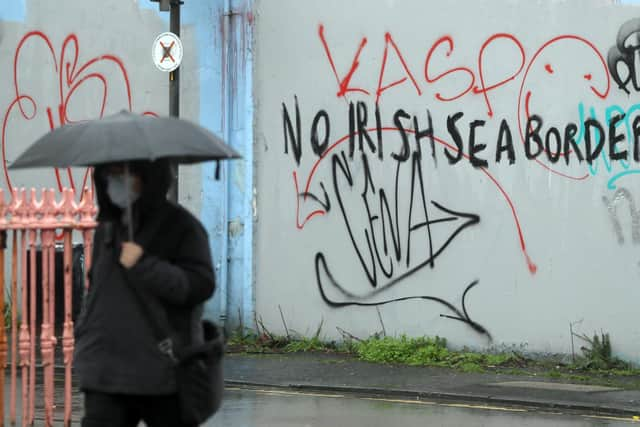'Things could go in the wrong direction' if NI Protocol issues not addressed warns Doug Beattie
and live on Freeview channel 276
Mr. Beattie made the remarks during a meeting of the Joint Committee on the Implementation of the Good Friday Agreement on Wednesday afternoon.
As part of its five point plan to undermine the NI Protocol the DUP refused to take part in the meeting which left Mr. Beattie as the only unionist representative in attendance.
Advertisement
Hide AdAdvertisement
Hide AdAs he prepared to ask his first question of his Republic of Ireland counterparts Mr. Beattie joked his “back was against a wall a little bit”.


Mr. Beattie referred briefly to the DUP's absence from the meeting as "their decision".
Mr. Beattie stressed that the concerns within the unionist community concerning the NI Protocol were very real.
"If we don't address it [NI Protocol] things are going to go in the wrong direction," he warned.
Advertisement
Hide AdAdvertisement
Hide AdMr. Beattie also said the concerns of unionists in Northern Ireland “cannot be batted away and ignored” and could lead to the “unravelling of a lot of good work over many years by many good people”.
The DUP's decision not to take part in the meeting is part of its five step plan to undermine the Northern Ireland Protocol.
One of the steps was to withdraw from cooperating with the Irish government on a cross-border basis on anything connected with the protocol.
DUP leader Arlene Foster said last week that her party wanted the protocol scrapped but since that time top officials in London, Dublin and Brussels have all signalled a desire to make it work.
